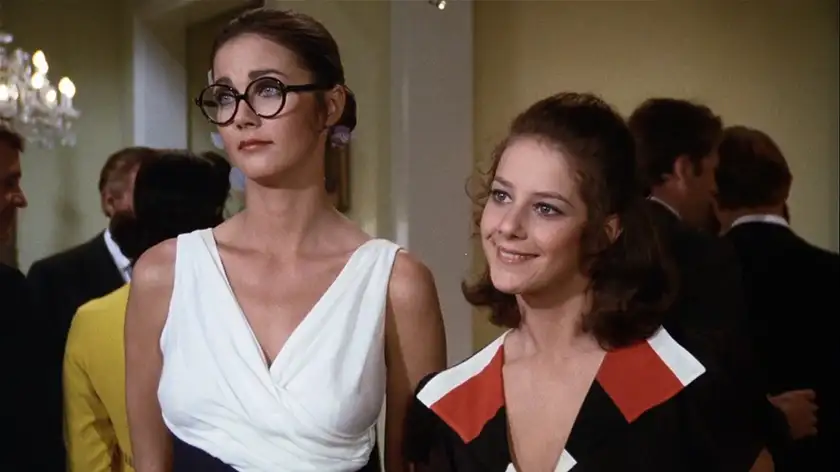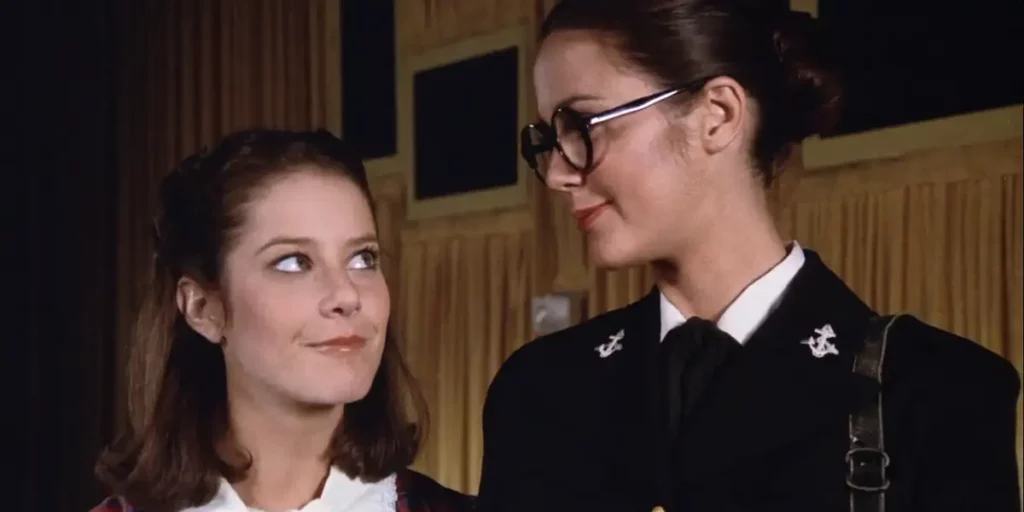Wonder Woman episode 14 sees out the first series of ‘70s Wonder Woman, and brings together a lot of the show’s best bits to do so.
“Oh, I’m not in any movie.” – Wonder Woman
Wonder Woman (1975) episode 14 (“Wonder Woman in Hollywood”) is fun. That’s right, it’s a fun one, and, boy, am I glad. Heading into this, the final episode of the series, I was worried it wasn’t going to be very finale-esque. There are a few duds in this show, and I was afraid that the last of the bunch wouldn’t be a stand-out. Well, I’m happy to write that it is a stand-out. It’s a fun one. So here, let me tell you all about it.
To begin, Wonder Woman episode 14 opens with a cigar-smoking, bigwig movie producer pitching some new propaganda film to the U.S. war department. This movie idea involves four American war heroes re-enacting some of their more marketable battle stories. Major Steve Trevor (Lyle Waggoner) is of course up for one of these main roles (what bagged him the title of ‘war hero’ I don’t think we’ll ever know), but General Blankenship (Richard Eastham) isn’t too sure about the whole venture. That is, until said producer, named Mark Bremer (Harris Yulin), says that the movie’s box office receipts will go towards buying war bonds, and then he’s pretty keen about it all. Money, money, money, as the song goes.
Steve is, then, off to Hollywood to shoot a movie, and he brings his secretary Diana Prince (Lynda Carter) along with him. If he didn’t, Wonder Woman wouldn’t be there to save him when he inevitably gets into trouble, and that would make for an episode of television too short to broadcast. Once in Hollywood, things typically go a bit skewiff, and it turns out that the movie production is actually a ruse to kidnap the four American heroes and take them to Germany, where they’ll be tried for war crimes. Surprise, surprise, it’s the movie producer who is a sack-of-sh*t Nazi.
In fact, Bremer might just be the coldest villain of the series. He doesn’t have any of the redeeming qualities the show often provides its female Nazis, but he’s also striking enough to not be lumped in with all the indistinguishable male Nazis we’ve been so frequently introduced to. Bremer’s heartlessness and empty expressions are still not particularly unexpected however, what with us knowing him to be a Hollywood producer and all that.
Aside from its quasi-meta plot, there are a few things in Wonder Woman episode 14 that really make it for me. You see, there have been times throughout this series when I wondered if the pilot episode was to be the best of it. There have been the odd episodes that gladly proved me wrong (“Fausta: The Nazi Wonder Woman”, “The Feminum Mystique”, and “Judgement from Outer Space”, for example), but none have done so quite like Wonder Woman episode 14, for it contains a lot of the things that I was originally drawn to back in that first episode.

The joy of watching 1970s extras pretend to be ‘40s civilians has been intermittently present throughout the show so far, but is produced here in a bigger way than usual via crowds of movie fans, movie crew members, and even via a party that hosts more than just the main characters for once. Comedy hasn’t felt of much focus since the pilot, though temporarily re-centred with Drusilla (Debra Winger) in episodes five and six, but here there are: a sight gag, amusing Queen Hippolyta dialogue, and a bully coated with ice-cream gets his hat handed back to him by the café employee who’s counter he’s just been thrown over.
Also, Drusilla herself is here in Wonder Woman episode 14, demonstrating a continuity currently unprecedented outside of the show’s two two-parters, as well as being as welcome a presence as ever. Paradise Island even makes a cameo, which, although short, and continuing to look like a different place each time it does show up, still receives a few points from me. I am, as we know, but a sucker, simply pleased by the concept of an island that is home to a race of immortal, mythological women. Overall though, I’m just really glad that the first series of ‘70s Wonder Woman goes out on a high, even ending on a stark image of American war heroes being kidnapped by a group of Nazis driving a Warner Bros. van.
From this point on however, the show moves to a different channel, and picks up thirty in-universe years later. And, beyond this show entirely, Wonder Woman adaptations go on to include fighting games, animated shows, and franchise movies, but this is the last time she is seen simultaneously to be in the 1940s, and upon the small screen. That does feel a bit sad to me, what with all the yet-mined potential that sort of set-up seems to have. But I’m happy we’ll always have these fourteen episodes: as fun, boring, bizarre, formulaic, goofy, and sincere as they are – as various as they are, and as contently imperfect they are as a collection.
Episode 14 of Wonder Woman (1975) is now available to watch on digital and on demand. Read our review of the 2017 film Wonder Woman!

 loudandclearreviews.com
loudandclearreviews.com
